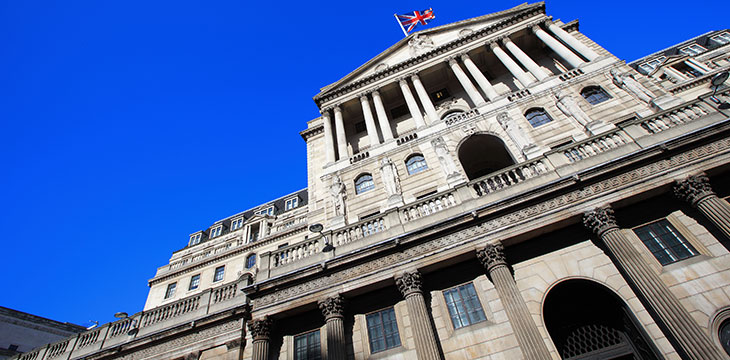|
Getting your Trinity Audio player ready...
|
The Bank of England (BoE) has had its eyes on blockchain technology for some time and has even announced that it is considering its own cryptocurrency. Now the bank is looking to take its blockchain integration one step further, and will be redesigning part of its system that could take the technology mainstream.
BoE Governor Mark Carney announced in a speech a few days ago that the bank will redesign its Real Time Gross Settlement (RTGS) system, which will allow private businesses and platforms to connect to the bank through distributed ledger technology (DLT). Carney said that the RTGS system is “the backbone of every payment in the UK,” noting that, “No longer will access to central bank money be the exclusive preserve of banks.”
The BoE has already begun to work with the Monetary Authority of Singapore, the Bank of Canada and a number of private-sector entities to enhance cross-border payment solutions, including some options that incorporate DLT. He pointed out the savings this could represent to the country, stating, “The potential returns are large. At present, cross-border payments can cost ten times more than domestic ones. We estimate that in the UK alone there is scope to realize annual savings of over £600 million [$795 million]. Most fundamentally, the more seamless are global and domestic payments, the more UK households and businesses will benefit from the new global economy.”
This past April, the financial entity published a proof-of-concept (PoC) paper that determined how to create a distributed ledger system that could maintain privacy, allow for regulatory oversight and to store data shared across the network. The system’s central authority would maintain power over the system, giving it the power to issue or retire new assets, as well as grant permissions to system participants. Transaction details would not be accessible to parties outside the transaction, except for the regulatory authority.
Carney also said of the overhaul, “The new RTGS will capture much richer data on every payment made in a format that defines international best practice. The Bank is currently consulting on how to do this, including on the desirability of embedding the best corporate identifier, the Legal Entity Identifier (or LEI), in RTGS and all the UK’s main payment systems. This will improve access to the domestic and global financial system, support greater choice and competition for corporate end-users, and advance anti-money laundering and combating the financing of terrorism efforts.”

 02-22-2026
02-22-2026 




